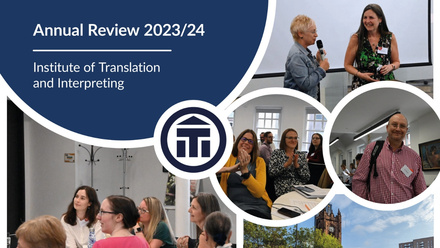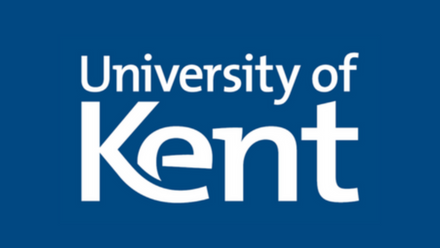ITI submits evidence to House of Lords Committee inquiry
Over the summer, the cross-party House of Lords Public Services Committee launched a short inquiry into Interpreting and Translation Services (ITS) in the Courts and invited relevant stakeholders to submit written evidence.
The inquiry seeks to understand the experience of procuring ITS in the courts, policy recommendations for supporting service providers, and the potential role of technology in enabling Interpreting and Translation Services and expects to report on its findings towards the end of the year.
Read ITI's written submission below.
On 6 November ITI's CEO Sara Robertson, gave evidence in-person to the committee. Watch the recording of proceedings.
Find out more about the inquiry on the Houses of Parliament website.
Questions and answers
1) To what extent do the current interpreting and translation services provided in courts meet the needs of those involved in proceedings, including defendants, witnesses, prosecutors and legal professionals?
The current provision of interpreting and translation services in UK courts can be inconsistent and often fails to meet the needs of all parties involved in proceedings. The outsourcing of language services to reduce costs has led to a degradation of pay and working conditions for freelance public service interpreters and translators. This has resulted in a shortage of appropriately qualified professionals who are willing to work in these vital roles, potentially compromising the quality of services provided. There is now a growing number of well-documented cases of costly delays, collapsed trials and miscarriages of justice within the UK Criminal Justice System. In addition to the additional stress placed on defendants and witnesses, this inefficient and wasteful use of taxpayers’ money also risks severely eroding public faith in the courts and public services through damaging media coverage.
There is also inconsistent provision across different types of courts. While defendants in criminal cases are generally entitled to an interpreter, the situation is less clear in civil or family courts. In the civil and family courts interpreters may only be provided if the individual cannot afford to pay for one themselves, does not qualify for legal aid, and does not have a friend or family member who has been accepted to act as interpreter by the judge. The principle of independent and impartial interpreting is placed at risk if judges are allowed to permit a relative or friend to act as an interpreter for a party in court. (Reference: https://www.gov.uk/get-interpreter-at-court-or-tribunal)
2) What are the key issues in the provision of interpreting and translation services and what impact do they have on the running of the courts, public trust, interpreters and translators?
The key issues in the provision of interpreting and translation services include:
- Inadequate remuneration: The current fee structures do not adequately compensate professional freelance public service interpreters and translators for their time, skills, and expenses.
- Working conditions: There are widespread concerns about the working conditions experienced by freelance public service interpreters and translators and, specifically, the lack of welfare and wellbeing support. Court staff, including the judiciary, do not always appreciate the cognitive overload experienced by an interpreter who is required to interpret simultaneously for hours without breaks. In commercial settings conference interpreters work in pairs, changing every 20-30 minutes to address this issue.
- Inefficient allocation of resources: The current booking system often results in interpreters travelling long distances for assignments, which is not cost-effective and can lead to delays due to traffic disruptions.
- Lack of standardised qualifications and experience requirements: There is some inconsistency in the qualifications and experience required for different types of interpreting assignments.
- Lack of robust complaints procedures: The current system does not facilitate easy reporting of issues, particularly for non-English speakers.
Taken together these issues impact the courts, public trust, and interpreters and translators in several ways:
- Wasted resources: Delays and cancellations due to the lack of interpreter availability or travel issues can disrupt court schedules and increase costs.
- Public trust: Reputational damage arising from the perceived inefficient and wasteful use of taxpayers’ money, along with potential miscarriages of justice, risks eroding public faith in the courts and public services.
- Interpreter and translator retention: Poor working conditions and inadequate compensation lead experienced professionals to leave the field or refuse to work under the main framework contracts. This will inevitably lead to increased resourcing challenges for the courts in due course.
It is crucial for the Government and the Ministry of Justice to work with language sector stakeholders to address these issues in order to ensure the future availability of qualified, and appropriately experienced interpreters and translators.
3) Are the required qualifications and experience of interpreting and translation services in the courts consistent?
There is a clear lack of consistency in the qualifications and experience required for interpreting and translation services in the courts.
- Inconsistent standards: There is a lack of standardisation across governing bodies, contractors, and institutions regarding the recommended qualification and experience requirements for public service interpreters and translators.
- Qualification concerns: Only appropriately regulated, qualified, and experienced public service interpreters and translators should be used in vital public service contexts. However, this requirement is not always stipulated or enforced within framework agreements and other arrangements.
- Booking categories: Assignments are categorised as standard, complex, or complex written, implying that different levels of qualification may be required for different types of bookings. However, the criteria for these categories and their corresponding qualification requirements are not always clear.
4) What quality assurance and complaints procedures are in place in relation to interpreting and translation services in the courts?
The quality assurance and complaints procedures for interpreting and translation services in the courts are primarily managed by The Language Shop (TLS) under contract to the Ministry of Justice. (Reference: https://moj.languageshop.org/feedback)
While there is a system in place, several concerns have been raised:
- Accessibility: While the TLS website appears to provide a straightforward method for submitting feedback or complaints, it may be challenging for non-English speakers to navigate this process effectively.
- Language barriers: If the potential complainant doesn’t speak English, it can be extremely challenging for them to make a complaint about poor quality interpreting services.
- Data transparency: Information on the number and types of complaints made is not readily accessible, making it difficult to assess the effectiveness of the current system.
To improve the quality assurance and complaints procedures, consideration should be given to:
- Implementing a more accessible complaint mechanism for non-English speakers.
- Establishing an independent body to oversee quality assurance and handle complaints.
- Increasing transparency by regularly publishing data on complaints and their resolutions.
5) How easy is it to recruit and retain skilled interpreters and translators to work in the courts?
Recruiting and retaining skilled public service interpreters and translators has become increasingly challenging due to several factors:
- Qualification trends: There has been a significant decline in the number of candidates achieving Level 6 Public Service Interpreting (PSI) qualifications. In 2021, approximately 350 candidates were awarded a L6 PSI qualification, but this number halved in 2022. Projections for 2023 suggest the number could fall below 100.
- Inadequate remuneration: The current fee structures are driving many experienced public service interpreters away from court work. Some only accept court assignments if booked directly at Legal Aid Agency rates or commercial fees. A 2023 BBC survey found that 10% of public service interpreters are unlikely to continue in the profession in the next 12 months due to inadequate remuneration and poor terms and conditions. The Criminal Legal Aid (Remuneration) Regulations 2013 highlight the fact that, even at Legal Aid Agency rates, interpreters are least paid compared to all other experts. (Reference: https://www.legislation.gov.uk/uksi/2013/435/schedule/5)
- Declining interest: While court interpreting may initially attract new entrants due to its perceived prestige, low fees and poor working conditions quickly drive professionals away from this area of work. Data from the National Register of Public Service Interpreters (NRPSI) shows a 33% decline in registrations over the past 12 years, from 2,400 registrants in 2011 to 1,600 in 2023.
To address the systemic issues, the following actions are recommended:
- Implement measures to ensure that public service interpreters and translators are adequately remunerated.
- Ensure that appropriate measure to provide welfare and wellbeing support are put in place.
- Implement initiatives to encourage qualified interpreters to pursue Level 6 PSI qualifications.
- Support the development of clear career progression pathways and professional development opportunities.
6) What is the potential role of new technology (such as artificial intelligence, machine translation and the digitisation of court proceedings) in the future of interpreting or translation services in the courts?
The position paper recently published by the International Federation of Translators (FIT) states that FIT is “firmly against the replacement of human interpreters with unsupervised, unrevised machine interpreting and translation, as it creates unacceptable levels of risk and error, and undermines the role of professional interpreters and translators.” (Reference: https://library.fit-ift.org/public/Publications/positionpapers/PDP_202408_AI_EN.pdf)
Therefore, while it may be possible that new technologies could have the potential to support interpreting and translation services in the courts in the future, there are several challenges and concerns that would need to be overcome before their implementation could be considered:
- Overcoming risk: The deployment of AI for interpreting in courts presents significant risks that could compromise the integrity of legal proceedings. Errors in translation or interpretation could lead to miscarriages of justice, while the potential for system failures or data breaches raises serious concerns about the reliability and security of AI-driven interpreting services in such critical environments.
- Ethical issues: The use of AI in court interpreting poses significant ethical concerns, particularly regarding accuracy and fairness in legal proceedings. AI systems may struggle with nuances, cultural context, and rare languages, potentially leading to misinterpretations that could have serious consequences for defendants’ rights and the overall integrity of the justice system. Moreover, the lack of accountability and the inability to cross-examine an AI system raise questions about due process and the fundamental right to a fair trial.
- Technological limitations: AI capability is not the same across all languages. While some languages may be well resourced, the capability of AI in relation to many community languages is much less developed. The technologies currently available also have very limited capability in relation to dealing with dialects and the colloquial use of language. The inability to guarantee consistent accuracy across all languages, especially for less common ones, poses a substantial risk to equal access to justice for speakers of minority languages.
- Resource constraints: Given that the court service is currently underfunded it seems unlikely that there will be sufficient resource to invest in upgrading the infrastructure to meet the needs of high-quality artificial intelligence solutions in courtrooms in the near future.
- Training in the use of new technologies: There is currently very limited provision for training interpreters and translators to work with new technologies, and no public funding for such training. There would be little point in investing in new technologies unless there is a similar investment in enhancing the skills of the workforce.
Given these limitations, it is crucial to approach the use of AI and machine translation tools in court settings with considerable caution. It is clear that integrating new technologies ethically, effectively and efficiently into court interpreting and translation services would require extensive investment in research to develop AI and machine translation tools specifically designed for legal contexts. Any technological solutions would need to be scoped and developed in partnership with public service interpreters and translators and thoroughly tested and validated before implementation in court settings.
7) What is the current capability and accuracy of market leading artificial intelligence and machine translation tools in relation to ITS?
The current capability and accuracy of market-leading artificial intelligence and machine translation tools for interpreting and translation services in court settings is limited. The University of Surrey provides some of the most up to date and authoritative research in this area. (Reference: https://www.surrey.ac.uk/centre-translation-studies/research/research-areas)
Further in-depth research and development are needed to improve the accuracy and reliability of these technologies before they could be considered suitable for legal interpreting and translation.
Conclusion
The ‘Working Together’ white paper published by PI4J highlights the fragmentation, vulnerability, and complexity of the language services supply chain, which involves public sector commissioning and buying organisations, language service companies, and freelance interpreters and translators. It also emphasises the importance of language services for ensuring fair and equitable treatment of speakers of more than 300 different languages in the UK. The white paper warns that unless decisive action is taken to support the sustainable delivery of language services, the quality and safety of public services will be compromised. The Institute of Translation and Interpreting (ITI) hopes that the Public Services Committee will take the concerns raised through this Call for Evidence seriously, and we confirm our ongoing commitment to working with the Ministry of Justice and other language sector stakeholders to find effective solutions to address these issues.






